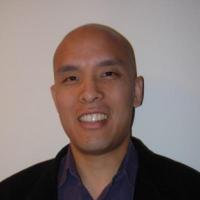SystemX Affiliates: login to view related content.

Energy-Efficiency is a key constraint for next-generation computing at the Extremes: from massive datacenters to wearable biosensors. For these applications, the energy consumed by communicating vastly outweighs the energy consumed by computing.
This talk will describe recent progress in my research group to improve the energyefficiency of interconnects at both extremes. First, I will discuss recent advances in 25G optoelectronics and silicon photonics using standard CMOS, for next-generation datacenters I/O. Second, I will present wireless radios and RF energy-harvesting for a battery-constrained biosensor-on-a-chip, worn by either humans or insects.
Time permitting, I’ll briefly discuss the challenges/opportunities for fabless-IC design in China, where I just completed my sabbatical building a research team at Fudan Univ.
Patrick Chiang received the B.S. degree in electrical engineering and computer sciences from the University of California, Berkeley, and the M.S. and Ph.D. degrees in electrical engineering from Stanford University. He is a tenured associate professor at Oregon State University, and a visiting professor at Fudan University in Shanghai, China.
He is the recipient of a 2010 Department of Energy Early CAREER award and a 2012 NSF-CAREER award, for energy-efficient interconnects and robust near-threshold computing. He is an associate editor of the IEEE Transactions on Biomedical Circuits and Systems, and published more than 100 conference/journal publications. He leads an international team in both China/USA on energy-efficient microelectronics, including optical transceivers and wearable biosensors-on-a-chip.


